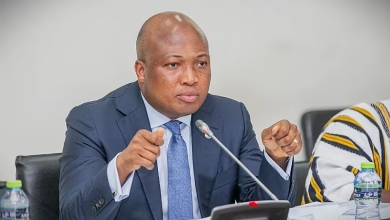Jordanians are voting Tuesday in their first parliamentary elections since 2022 reforms aimed at modernizing the government. The war in Gaza is a key issue, potentially boosting support for Islamists, though they are not expected to make major gains.
Jordan’s parliamentary elections take place on Tuesday amid frustration over the Gaza war and sluggish tourism. This is the first election since the 2022 reforms, which increased parliamentary seats, reserved more for women, and lowered the minimum candidate age.
Despite these reforms aimed at modernizing the parliament, both voters and candidates have indicated that the Gaza conflict is the primary concern. Analysts suggest Islamist candidates might not achieve significant gains and that the war could lead to higher abstention rates.
In 1994, Jordan became the second Arab state after Egypt to sign a peace treaty with Israel. However, with about half of Jordan’s population of Palestinian origin, protests calling for the treaty’s cancellation have intensified since the Gaza war began on October 7, following Hamas’s unprecedented attack on Israel.
Just two days before the election, a Jordanian man killed three Israeli guards at the border crossing between Jordan and the West Bank, marking the first such attack since the 1990s.
Voters are concerned that, regardless of the election outcome, the economy will not improve until a ceasefire is reached between Israel and Hamas. Tourism, a key sector for Jordan’s economy, has declined significantly since the conflict began, impacting about 14 percent of the country’s GDP.
Jordan faces deepening economic troubles, with public debt approaching $50 billion and unemployment reaching 21 percent in the first quarter of this year.
Election Concerns Polling opens at 7:00 am local time on Tuesday and continues until 7:00 pm, with results expected within 48 hours. Candidates include tribal leaders, leftists, centrists, and Islamists from the Muslim Brotherhood-affiliated Islamic Action Front (IAF).
In central Amman, where campaign posters are displayed, opinions on the election are mixed. Retiree Issa Ahmed, 65, said, “Elections are crucial for making our voices heard, though we doubt they will bring significant change.” Shop owner Mohammed Jaber added, “People are preoccupied with the Gaza war and the poor economic situation, uncertain about what the parties can achieve.”
Over 5.1 million Jordanians are registered to vote in the country of 11.5 million.
Omar Mohammed, a 43-year-old civil servant, expressed his frustration: “The daily violence, destruction, and tragedies from Gaza broadcast on television leave us feeling pain, helplessness, and humiliation, overshadowing the elections and everything else happening around us.” He added, “I feel disillusioned and am still unsure if I will participate in these elections.”
Candidates are also focusing on the Gaza conflict, with Islamists aiming to leverage solidarity with Gazans.
IAF candidate Saleh Armouti told AFP, “The Gaza war and the Palestinian cause are central to the Jordanian elections, with everyone focused on the atrocities in Gaza against the Palestinian people.” He added, “While the elections are crucial for supporting the Palestinian cause and the region, I fear there may be increased voter abstention due to these events.”
Analyst Oraib Rantawi, head of the Al Quds Center for Political Studies, agreed that the war might lead to higher abstention rates but doubted that the Islamists’ emphasis on Gaza would significantly boost their vote count. “The impact on their parliamentary representation is likely to be modest,” he said.
